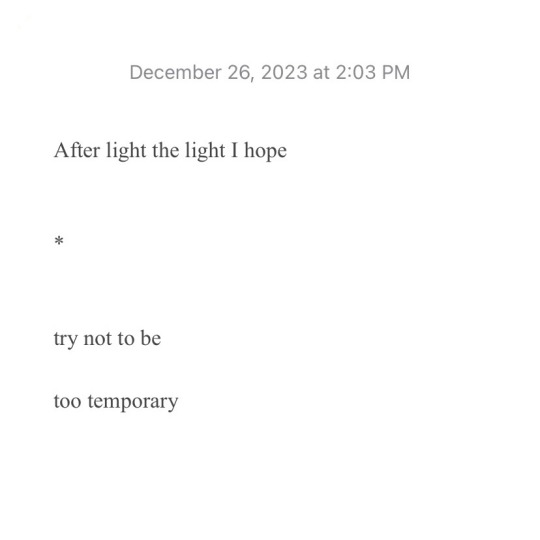Text
A little bit from an experimental project that I’ve been working on… for a while… to be published by Lamb Lamb Press later this year.
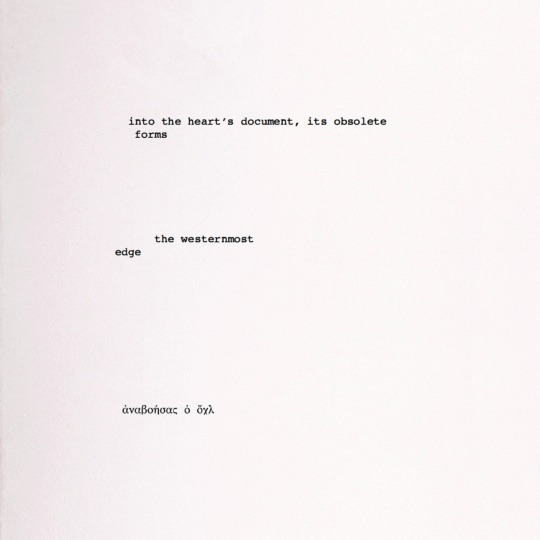



#poetry#poems and poetry#new release#upcoming#experimental#anthony opal#small press#book#lamb lamb press
4 notes
·
View notes
Text
7 BOOKLETS FOR $50
Translations of Basho, Buson, Issa, Santoka, Shiki, and Soha, accompanied by the original Japanese text and English transliteration (romaji).
*Read Anthony Madrid’s review in Fence Digital

#poetry#poems and poetry#haiku#translation#anthony opal#english#japanese#books#chapbooks#sale#small press#chicago#the economy press
2 notes
·
View notes
Text
ANOTHER ANIMAL is a short, limited-run poem.
*
I’ve seen an animal be merciful / to another animal
*
Available from The Economy Press.
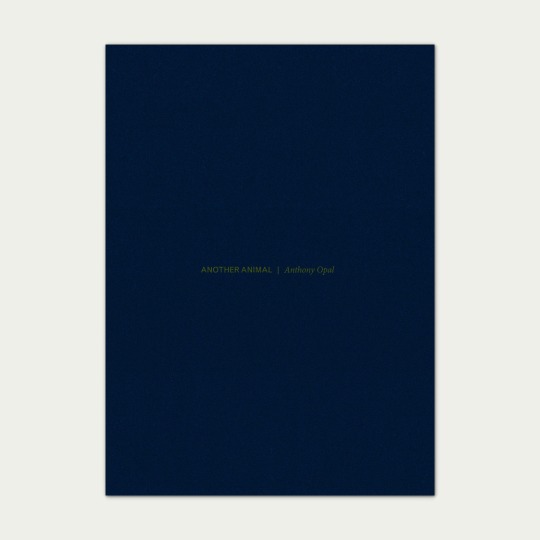

#poetry#poem#poems and poetry#book#chapbook#anthony opal#small press#animal#mercy#chicago#the economy press
2 notes
·
View notes
Text
Among Walt Whitman’s papers in the Valentine-Barrett collection at the University of Virginia is a handwritten manuscript titled “Live Oak, with Moss.” A dozen poems, the short collection is the first known iteration of what Whitman would develop into the longer Calamus sequence, published in the 1860 version of Leaves of Grass.
Fredson Bowers, who first discovered the early Calamus cluster, described the topical poems as “narrating an unhappy love affair … having special autobiographical significance for Whitman.”
Later, while visiting the Berg Collection in New York, Bowers came across a note in Whitman’s handwriting on the back of a separate ms. that contained parts of the first “Live Oak” poem and spoke to the general vision of the early sequence:
Poems
A cluster of poems, sonnets expressing the thoughts,
pictures, aspirations, &c
Fit to be perused during the days of the approach of Death.
(that I have prepared myself for that purpose.—
(Remember now—
Remember the[n]
“Live Oak, with Moss” is published here as a stand-alone collection, separated from the larger sequence and reconstructed as originally written and ordered by Whitman. Photos of the manuscript are accompanied by transcriptions, including edits, on facing pages.
LIVE OAK, WITH MOSS is available from The Economy Press.
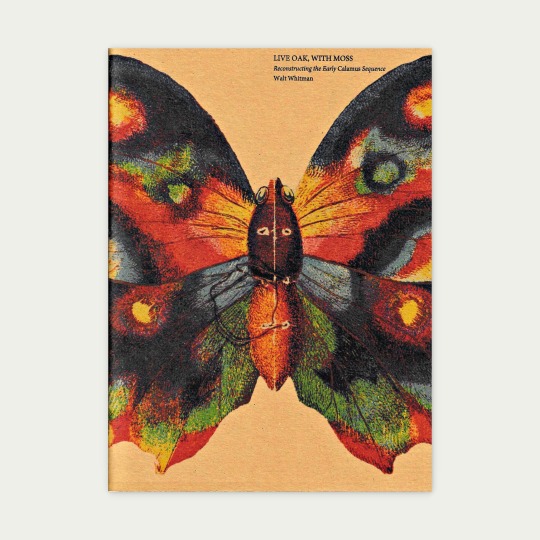

#poetry#poem#poems and poetry#whitman#waltwhitman#archives#manuscript#book#chapbook#small press#chicago#the economy press
2 notes
·
View notes
Text
BECAUSE SEX IS A STORY & SEX IS A SONG by Helen Betya Rubinstein is a collection of five short stories - lyric fictions - narrating various forms of human connectivity.
Available from The Economy Press.



#international women's day#women’s history month#fiction#short fiction#short stories#lyric#story#song#sex#book#small press#helen betya rubinstein#chicago#the economy press
2 notes
·
View notes
Text
Julian of Norwich (1343–1416) was the first woman to publish in English. Her writings - Revelations of Divine Love - survive in two versions: the Short Text (ST) and the Long Text (LT).
Printed here are two accounts of the same revelation - or shewyng - “ST iv” and “LT v.” Folios are marked according to the British Library and the Bibliothèque Nationale manuscripts, respectively.
The text appears in Middle English, unaltered, as originally written by Julian of Norwich.
ST iv & LT v is available from The Economy Press

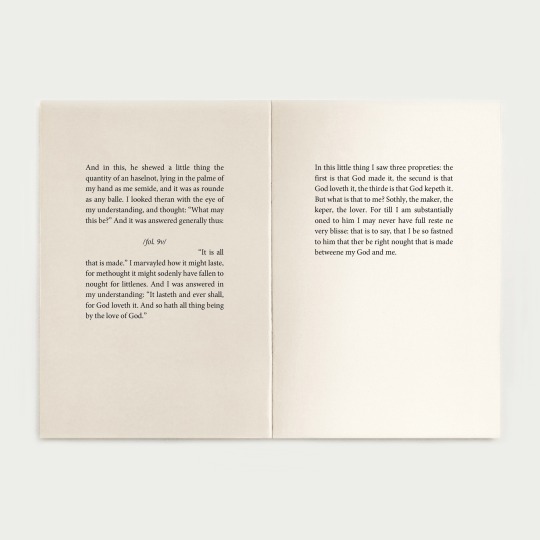

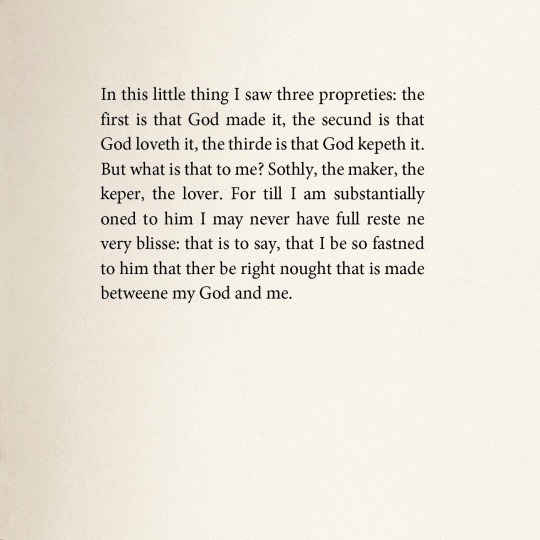
#international women's day#women’s history month#julian of norwich#middle english#mystic#theology#book#chapbook#smallpress#anthony opal#chicago#the economy press
2 notes
·
View notes
Text
In an article for Haiku magazine, Mishima Yukio describes Soha’s poems as “refreshing, demonic, figurative, and bleak.”
The goldfish bowl
I dropped
a flower on the pavement
Despite a unique brilliance, Soha’s work remains largely untranslated in English.
SIX PHRASES is a short and varied collection of Hatano Soha’s haiku. Each translation is accompanied by the original Japanese text and English transliteration (romaji).
Available from The Economy Press

#poetry#poems and poetry#haiku#hatano soha#soha#anthony opal#translation#english#japanese#book#chapbook#small press#chicago#the economy press
4 notes
·
View notes
Text
. . . the purpose of abstraction in any field - art, science, mathematics - is, out of incredible richness and complexity and detail of reality, 'to separate,' 'to select from' the complexity of reality that which you want to emphasize . . . (Robert Motherwell, “On the Humanism of Abstraction”)
THE MOTHERWELL SONNETS considers what this kind of abstraction can mean within a poem - taking inspiration from Robert Motherwell's writings and artwork - looking at the world with a related sense of monument and ephemera, improvisation and pose.
Incisive lyrical notes accompany the fourteen experimental sonnets in the manner of Spicer's Homage to Creeley, Rodefer's Villon, and other works.
Available from The Economy Press
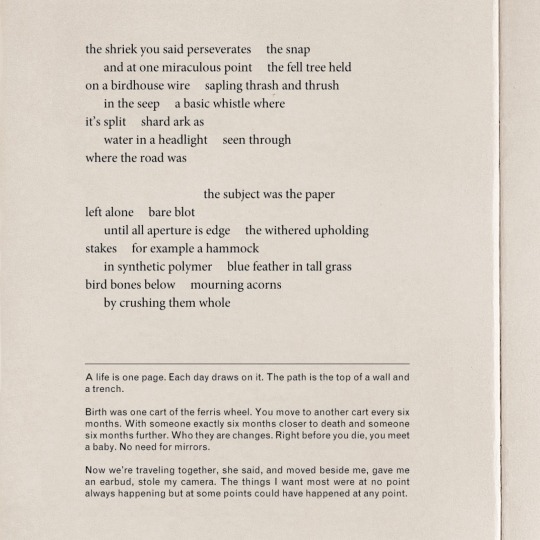

#poetry#poems and poetry#motherwell#robert motherwell#zach savich#book#chapbook#sonnets#small press#chicago#the economy press
3 notes
·
View notes
Text
PROCESSION is a chapbook-length by Anthony Opal poem in sequence and separating pairs.
Available from The Economy Press

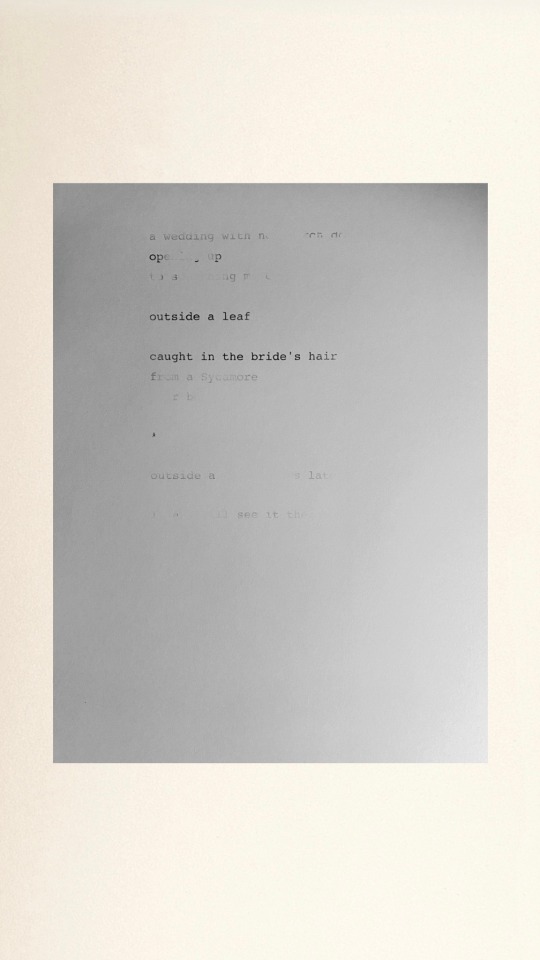

4 notes
·
View notes
Text
When art becomes intense, loneliness emerges, clarity emerges, strangeness emerges. If it doesn’t go that far, it’s a lie. My past writing has been like wine, and not even the best wine. But from now on it will be like water - clear, bright, and rippling without overflowing - or so I hope. (Santoka, Teihon Santoka Zenshu)
Through the kitchen
moonlight
alone
POEMS OF TANEDA SANTOKA is a short and varied collection of Santoka’s haiku. Each translation is accompanied by the original Japanese text and English transliteration (romaji).
Available from The Economy Press
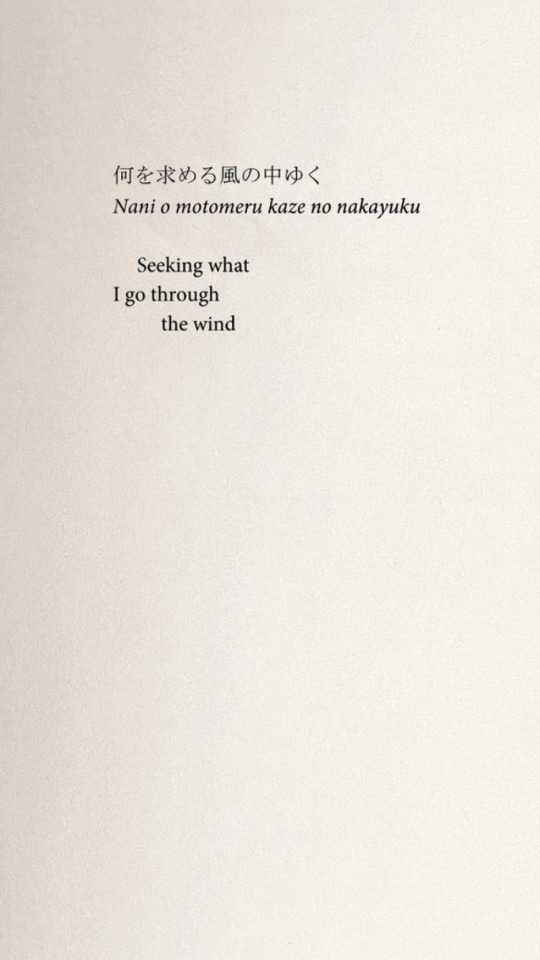
#poetry#haiku#translation#santoka taneda#anthony opal#book#chapbook#english#japanese#small press#chicago#the economy press
9 notes
·
View notes
Text
There’ll probably be some music, but we’ll manage to find a quiet corner where we can talk. (John Cage, “Erik Satie”)
THE ROOF ABOVE OUR HEADS is a book-length poem in facing monostichs - moving out from zero.
Available from The Economy Press

#poetry#poem#poems and poetry#john cage#erik satie#anthony opal#book#small press#home#chicago#the economy press
5 notes
·
View notes
Text
BE YOUR DOG is the episodic account of a stray dog, Xiao Chou, and the author, Matt Turner. Written in a voice that’s earnest and open, Be Your Dog pivots on subtle and freshly layered observations.
Available from The Economy Press
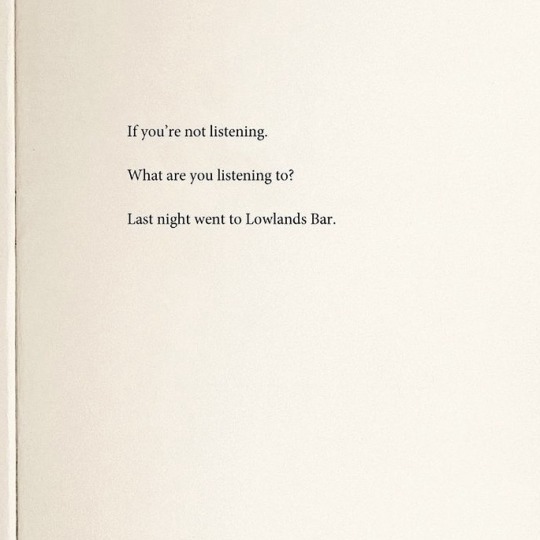
#memoir#poetry#fiction#hybrid#experimental#dog#haiku#book#chapbook#smallpress#chicago#the economy press
3 notes
·
View notes
Text
POEMS OF YOSA BUSON is a short and varied collection of Buson’s haiku.
Specifically highlighted is Buson’s warmth and dynamic portrayals of longing.
Each translation is accompanied by the original Japanese text and English transliteration (romaji).
Available from The Economy Press

#poetry#poems and poetry#haiku#basho#anthony opal#translation#english#japanese#book#chapbook#small press#chicago#the economy press#theeconomypress
5 notes
·
View notes
Text
POEMS OF MATSUO BASHO ii is a short and varied collection of Basho’s haiku.
Suffering from depression and a persistent sense of loneliness, Basho’s work embodies wabi-sabi. While difficult to articulate, wabi-sabi, for Basho, concerns the pursuit of simplicity - “lightness” - and the beauty of loneliness, “akin to, but deeper than, nostalgia.
Each translation is accompanied by the original Japanese text and English transliteration (romaji).
Available from The Economy Press

#poetry#haiku#translation#basho#anthony opal#english#japanese#chapbook#smallpress#book#chicago#the economy press
3 notes
·
View notes
Text
from PROCESSION - a chapbook-length poem by Anthony Opal in sequence and separating pairs.
Available from The Economy Press
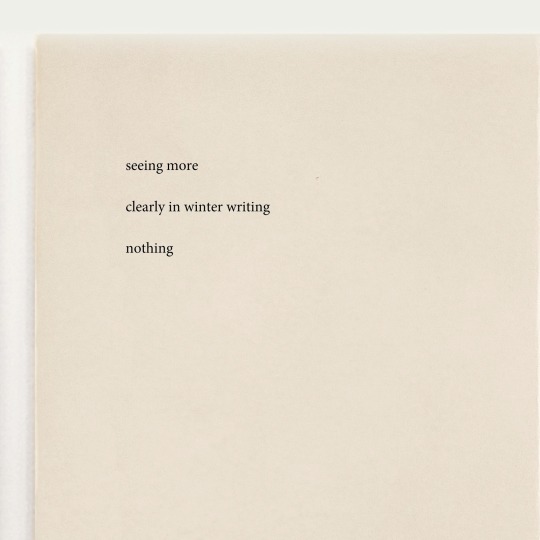
2 notes
·
View notes
Text
TO ASK FORGIVENESS OF THE BIRDS: The Words of Father Zossima
When Father Zossima was young, his dying brother asked forgiveness of the birds: “Though I can’t explain it to you, I like to humble myself before them, because I don’t know how to love them enough.”
These words became a cornerstone in Zossima’s existential theology, embracing love and absurdity - even love as absurdity.
Speaking with visitors before his own death, Zossima recalls his brother’s words: “My brother asked the birds to forgive him - that sounds senseless, but it is right - for all is like an ocean, all is flowing and blending - a touch in one place sets up movement at the other end of the earth.”
In Father Zossima, Dostoevsky embodies an honest, human response to the question of theodicy, marking a major development in early existentialist thought.
Available from The Economy Press

2 notes
·
View notes
